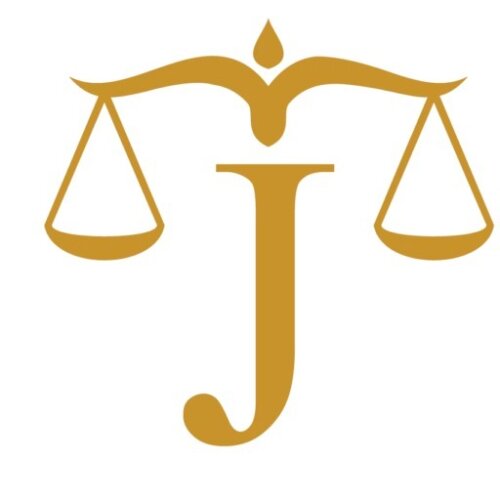Best Divorce & Separation Lawyers in Ernakulam
Share your needs with us, get contacted by law firms.
Free. Takes 2 min.
Free Guide to Hiring a Family Lawyer
List of the best lawyers in Ernakulam, India
India Divorce & Separation Legal Questions answered by Lawyers
Browse our 2 legal questions about Divorce & Separation in India and read the lawyer answers, or ask your own questions for free.
- Married life issue.
- How to get divorce. What is the criteria.
-
Lawyer answer by MAH&CO.
Thank you for your question.As an experienced family lawyer with decades of practice in divorce, khula, and marital dispute resolution, I can guide you through the legal process of obtaining a divorce in Pakistan. Divorce Procedure & Criteria (for Men):Under...
Read full answer - It is possible to do a marriage null and void?
- I’m French and live in France. I married with an Indian in Hathras in India. He lives in Delhi in Tagore garden. He cheated with me and he was interested by visa and money. He created a fake wedding card, made me sign some documents to get the registered marriage... Read more →
-
Lawyer answer by LAW CHAMBER OF ADVOCATE RAJVEER SINGH
BASED ON THE INFORMATION PROVIDED BY YOU, THIS MARRIAGE IS VOID AB INITIO AND IT CAN BE DECLARED VOID BY THE INDIAN FAMILY COURTAs you mentioned, since the marriage was conducted under the Hindu Marriage Act without a valid religious...
Read full answer
India Divorce & Separation Legal Articles
Browse our 1 legal article about Divorce & Separation in India written by expert lawyers.
- A Layman’s Guide to a Landmark Ruling on Rights of Divorced Muslim Women
- The Supreme Court of India, on 2 December 2025, delivered a judgment that carries deep significance for Muslim women across the country. The case, Rousanara Begum v. S.K. Salahuddin (2025 INSC 1375) SC Judgment of 2Dec2025, concerned a simple yet socially important question:When gifts such as cash, gold, or household... Read more →
About Divorce & Separation Law in Ernakulam, India
Divorce and separation in Ernakulam are guided predominantly by the Indian legal system. The laws are organized around socio-religious communities such as Hindu, Muslim, Parsi, and Christian. For instance, Hindu marriage laws apply in cases where both spouses are Hindus, Buddhists, Jains, or Sikhs. Separate laws apply to cases involving other religions, and special enactment represents parties of different religions.
The grounds of divorce and separation include adultery, cruelty, desertion, conversion, mental illness, communicable disease, renunciation of the world, and presumed death. The process, however, may be both exhaustive and complex, thereby requiring legal assistance.
Why You May Need a Lawyer
There are several reasons why you may require a lawyer. The process of divorce involves different stages such as filing, notice issuance, response, mediation if applicable, settlement or trial, and the final judgement. In contentious cases, the process might get more convoluted. Experienced lawyers can help handle such complex procedures, paperwork, and can represent you in court.
Furthermore, a divorce lawyer can safeguard your interests, especially concerning property division, child custody, and spousal support. Also, understanding and executing legal obligations is another critical domain where a lawyer's expertise is beneficial.
Local Laws Overview
The primary laws regulating divorce and separation in Ernakulam include the Hindu Marriage Act of 1955, the Indian Divorce Act of 1869, the Parsi Marriage and Divorce Act, 1936, and the Muslim Personal Law (Shariat) Application Act of 1937. The Indian legal system also recognizes 'Customary Divorce' where certain tribes, communities can precede their law while in matters of divorce.
In terms of child custody, India follows the Guardian and Wards Act of 1890, and the paramount focus remains the welfare of the child. The court determines the child's custodial responsibilities considering age, gender, the mental and physical health of the parents and child, cultural considerations, the child's opinion, etc.
Frequently Asked Questions
1. What is the process of obtaining a divorce in Ernakulam?
The divorce process involves the filing of a divorce petition, serving the divorce notice, responding to the notice, mediation, presiding settlement or trial, and issuance of the final divorce decree. It would help if you sought legal counsel for a smooth process.
2. Can my spouse refuse to grant me a divorce?
Yes, a spouse can contest a divorce, but if the court finds legitimate grounds for the divorce (such as cruelty, desertion, etc.), it can grant the divorce.
3. How long does the average divorce process take?
The duration can vary widely depending on the specifics of the case. An uncontested divorce may take 6 - 18 months, while a contested one could take years.
4. What happens if I can't afford a lawyer?
You can seek assistance from legal aid societies that provide free or low-cost legal services, or in some cases, the court may appoint one for you. You can also represent yourself.
5. How is child custody determined?
Child custody is based on the child's best interest, with considerations for the child's age, health, emotional ties, school, and cultural factors.
Additional Resources
Relevant resources include the District Legal Services Authority (DLSA) and the Kerala State Legal Services Authority (KELSA). Both bodies offer free and competent legal services to those in need.
Next Steps
If you need legal assistance with divorce or separation in Ernakulam, begin by consulting a lawyer to guide you through the process. Collect all relevant documents and be honest with your attorney about all aspects of your relationship. Ensure that you understand your rights and obligations as they are defined by local laws.
Lawzana helps you find the best lawyers and law firms in Ernakulam through a curated and pre-screened list of qualified legal professionals. Our platform offers rankings and detailed profiles of attorneys and law firms, allowing you to compare based on practice areas, including Divorce & Separation, experience, and client feedback.
Each profile includes a description of the firm's areas of practice, client reviews, team members and partners, year of establishment, spoken languages, office locations, contact information, social media presence, and any published articles or resources. Most firms on our platform speak English and are experienced in both local and international legal matters.
Get a quote from top-rated law firms in Ernakulam, India — quickly, securely, and without unnecessary hassle.
Disclaimer:
The information provided on this page is for general informational purposes only and does not constitute legal advice. While we strive to ensure the accuracy and relevance of the content, legal information may change over time, and interpretations of the law can vary. You should always consult with a qualified legal professional for advice specific to your situation.
We disclaim all liability for actions taken or not taken based on the content of this page. If you believe any information is incorrect or outdated, please contact us, and we will review and update it where appropriate.










